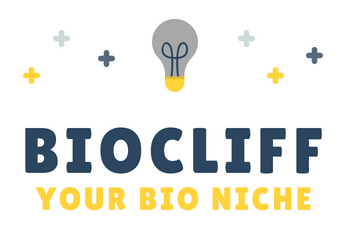>>WHAT'S SYNTHETIC BIOLOGY??
>>BIOCLIFF UPDATES ON SYNTHETIC BIOLOGY![READ ALL]
Synthetic biology is the design and construction of biological devices and systems for useful purposes. It is an area of biological research and technology that combines biology andengineering, thus often overlapping with bioengineering and biomedical engineering. It encompasses a variety of different approaches, methodologies, and disciplines with a focus on engineering biology and biotechnology.
Synthetic biologists approach the creation of new biological systems from different perspectives, focusing on finding how life works (the origin of life) or how to use it to benefit society. The former focus includes the approach of biology, inserting man-made DNA into a living cell; and chemistry, working on gene synthesis as an extension of synthetic chemistry. The latter focus includes engineering, building the new biological system as a platform for various technologies; and rewriting, rebuilding the natural systems to provide the engineered surrogates.
The advance of synthetic biology relies on several key enabling technologies provided at ever increasing speed and lower cost. DNA sequencing, fabrication of genes, modeling how synthetic genes behave, and precisely measuring gene behavior are essential tools in synthetic biology. Its popularity has grown as a result of increasing developments within DNA synthesis technologies; now it is more affordable to synthesize a gene as opposed to cloning it. Also, genome databases can be used as a template for creating viruses at minimal cost.
Geneticists have found a number of gene sequences which correspond to differing traits in organisms; these individual gene sequences have been developed and incorporated into DNA similar to genetic "lego" blocks. This is essentially how genetic engineers alter the DNA of living organisms. What separates Synthetic biology from Genetic engineering is that rather than altering an already existent DNA strand, synthetic biology puts these "blocks" together from scratch to build an entirely new strand of DNA which is then placed into an empty living cell. These new cells can be "built" to perform a number of functions that could greatly benefit humanity. These operations do not exist in nature. Furthermore, projects involving the integration of standardized parts are the only ones that should be deemed true synthetic biology projects.Synthetic biology introduces three new foundational technologies to genetic engineering: the ability to synthesize new genes in a de novo fashion; the ability to obscure complexity through abstraction; and the introduction of engineering standards.
Biosafety and biosecurity concerns are the understandable response to this new science and technology that have the potential to profoundly change the nature of life forms as we know it. Numbers of civic society groups and online forums called for study of societal and ethical impact of this new technology, licensing and monitoring. The community of synthetic biology has discussed policy options and started initiatives of self-regulation. Symposia and meetings by the broader science community have brought the efforts at developing guidelines and regulations; addressing the issues of intellectual property and governance, and the ethical, societal and legal implications. Several bioethics research institutes published reports on ethical concerns and the public perception of synthetic biology. A report from the U.S. Presidential Commission for the Study of Bioethical Issues called for enhanced federal oversight in the United States on this emerging technology. READ MORE
>>BIOCLIFF UPDATES ON SYNTHETIC BIOLOGY![READ ALL]
>>YOU PUBLISH UPDATES ON SYNTHETIC BIOLOGY![READ ALL]





No comments:
Post a Comment
Share Your Opinion With All!